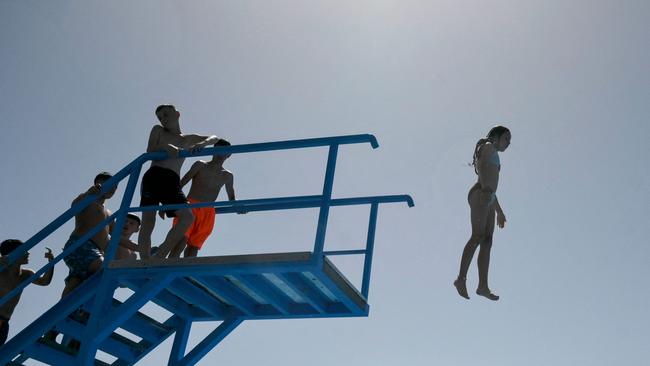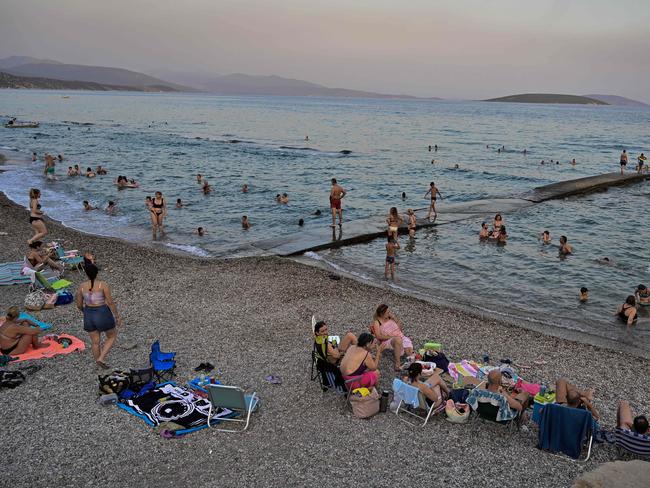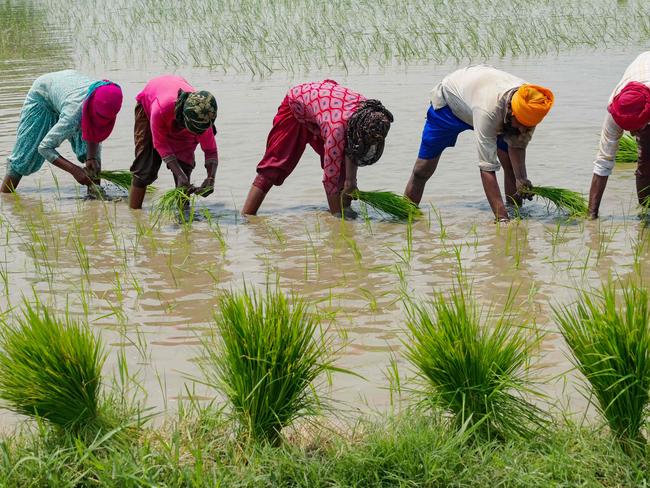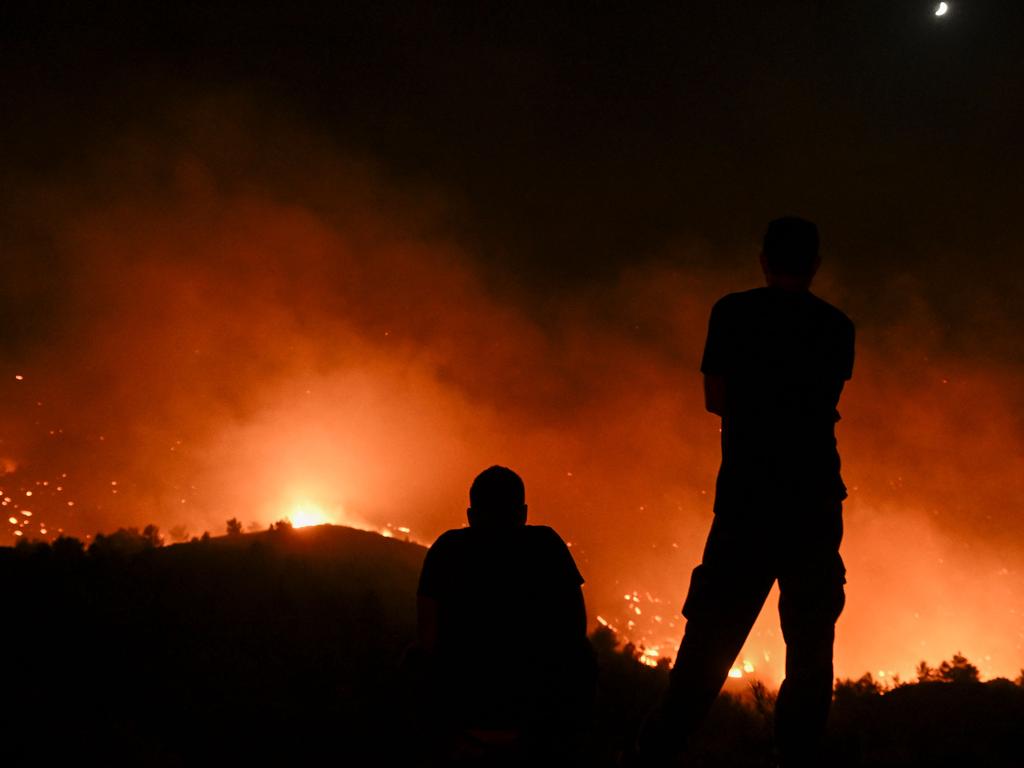
One of the outcomes of those changes will be higher inflation.
The first transformation event is the incredible heatwaves that are gripping the US, Europe and parts of China.
Greece’s top tourist attraction, the Acropolis, fell victim to the heatwaves, while fires on the island of Rhodes forced evacuations.
Over the weekend, about 80 million Americans experienced a so-called “heat index” event, where the temperature feels like 105 degrees to the body.
The extreme heat is taxing power grids, increasing healthcare costs and impacting the tourist industry.
But that’s just the start because it will also create an investment boom.
In the post-Covid-19 recovery, venture investing in climate technology has been strong, but this heatwave will explode investment to beyond $US1 trillion.
Even before the heatwave, three major climate initiatives were set to drive the boom – led by the Biden administration’s sweeping climate bills, the European Union’s Green Deal and China’s low-carbon development initiatives they were part of its latest five-year plan.
The investment boom will now go further.
In Europe, most cities are not equipped to handle high temperatures – they were designed for cold weather.

Accordingly, aside from the grand schemes in the Green Deal, households are going to increase their investment to make homes more liveable in times of extreme heat.
Traditionally, European industry has been placed alongside rivers, enabling smooth transportation.
On the Rhine, companies have faced disruptions due to low water levels for three out of the past five years, including 2018 when barges struggled to travel.
Companies are now looking at relocation.
Add this to the investment in renewable and nuclear power generation plus batteries, and the world is embarking on an investment program of unprecedented proportions outside times of global war.
This is going to it stretch demand for a wide range of minerals, which will boost prices and inflation.
Indeed, it’s unlikely that the world will be able to produce the quantity of minerals and other requirements to meet the demands of the boom.
European and US central banks with inflationary goals of around two per cent need to step outside their air-conditioned offices and experience the temperatures accelerating this boom.
Here in Australia we have our own set of carbon reduction plans, but we will struggle against the world dynamic.
The investment costs will be astronomical, and today’s power prices will look cheap.
The second enormous change is the looming shortage of food, which will cause great human suffering but also increase fears of global food inflation.
India has banned exports of non basmati white rice just as Russia is targeting grain ships, so pushing up wheat and corn prices
Rice prices in India have risen 11.5 per cent over the past year, including three per cent over the past month, partly caused by a one third increase in the world demand for Indian rice which put pressure on supplying the local Indian market
India is the world’s biggest rice exporter, accounting for 40 per cent of global exports.
It has also put a tax on some of its rice exports. The next largest rice exporters – Thailand and Vietnam, will not be able to fill the gap.
Rice is a staple for billions of people worldwide. In normal times, rice demand can be switched to wheat and corn.
But in the same week as India’s export ban, Russia began bombing Ukraine silos and pulled out of the Black Sea grain initiative, which for the past 11 months has allowed more than 30 million tonnes of Ukrainian grain and edible oils to be exported around the world.
Wheat and corn prices have jumped around 10 per cent in response.

The third fundamental change is coming in China where the horror of the Evergrande, property mess and associated problems in China’s property industry are becoming better understood.
Evergrande is also contributing to a change in the attitudes of the Chinese leadership towards entrepreneurship.
But the private sector is not responding because confidence has been shattered.
This month, China announced a 31 point set of guidelines to bolster the confidence of the private sector.
But after three years of government crackdown on private companies and their innovation, plus exaltation of state-owned businesses, boosting business confidence will be slow.
China’s economic problems are rooted in politics and property.
Quietly, entrepreneurs say restoring confidence would require systemic changes that offer real protection of the entrepreneur class and private ownership.
Australians dealing with China will need to understand that China may not drive global prosperity in the way it has in previous decades.
Each of the changes above on their own would be massive, but to have three taking place at once has few precedents.








While Australia’s Prime Minister Anthony Albanese has one priority – the voice – three fundamental changes are taking place in global economies that will transform the world in which we live.